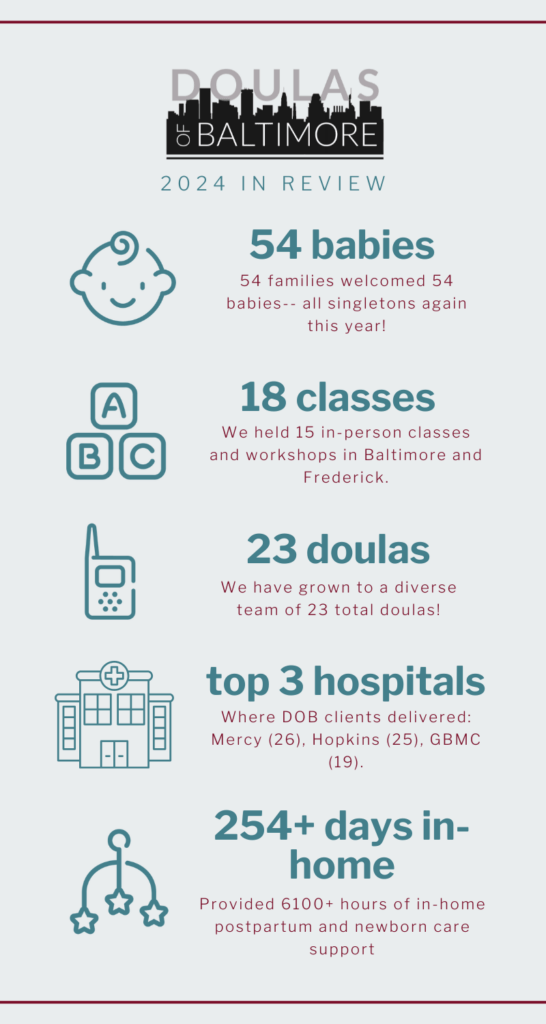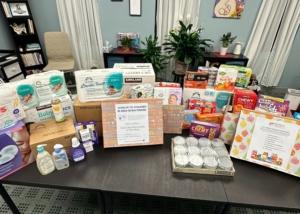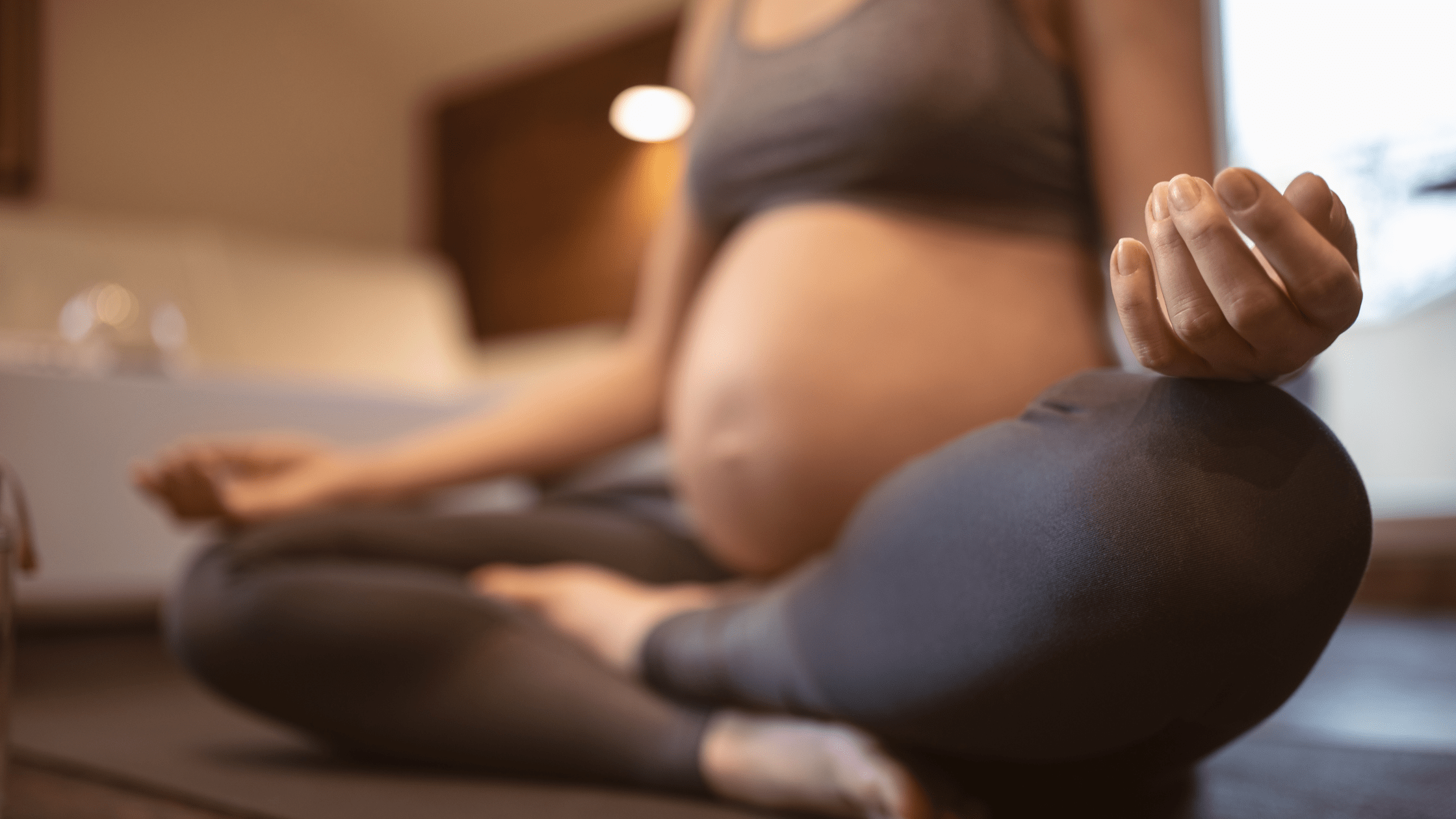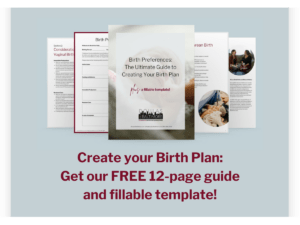We know that bringing your newest family member home can be exciting and challenging. A trained and certified postpartum doula will help you with a smooth transition as you welcome a new member to your family. Through a combination of daytime, evening, and overnight shifts, we are here to support your family’s unique needs. Here are the ways we offer practical, informational, and emotional support at home, when you need it.
A postpartum doula’s practical support helps you take care of baby, yourself, and your family.
People often come to us looking for practical support when baby comes home. This can include feeding, caring for baby so you can attend to your needs, or helping prepare meals. During an overnight shift, a postpartum doula might put baby to bed, change diapers, and settle baby back to sleep. During a day shift, our support might allow you to take a shower, cook a meal, or breastfeed in peace. Pro tip: ask your doula to prep you snacks for the days they aren’t there to make even their off days a little easier!
We provide information so you understand the 4th trimester.
The first weeks and months after baby is born are often called the “4th trimester”. Many parents have just as many questions about what to expect as they did during pregnancy (if not more!). Postpartum doulas can do many specific tasks around the house, but clients often share that our value comes from being childbirth and newborn experts. We provide feeding guidance, answer questions, and offer information on soothing and sleep habits.
In the morning after a recent overnight shift, our doula talked to one partner about how the night went. She offered advice on how to get baby sleeping for longer stretches. Suggestions included creating sleep associations, keeping baby awake during the day for developmentally appropriate stretches, and nursing demands during the day. We are here to provide the support you want, but your doula will also work with you and your family to create the household, feeding, and sleep routines that work for you so that we are no longer needed!
Emotional support from a postpartum doula helps your family grow and adjust with confidence.
In general, our postpartum doulas provide a minimum of sixty hours of in-person support during the baby’s first six weeks at home. These can be split between daytime, evening, and overnight shifts. However, our job as postpartum doulas is to create a smooth transition and give you and your family the skills and knowledge needed to manage the addition of baby.
For example, during one daytime shift, our doula spoke to one partner about returning to work. He was looking forward to it, but felt guilty about leaving his partner with the new baby at home. Our doula talked about ways to continue contributing and how he could alternate bedtime duties. We are here to provide steadfast, non-judgemental support so you can feel confident about welcoming a new child into your family.
Learn more about our postpartum doula offerings or contact DOB today!








